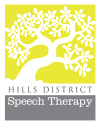Introduction to Language
Language is the method we use to communicate with others. It consists of expressive and receptive language. Expressive language refers to the words and gestures a person uses, and how these are used to share ideas and have needs met. Receptive language refers to a person’s understanding of information given to them. Language can be oral (e.g. speaking and listening), through alternative modes of communication (e.g. a communication device), or written (e.g. reading and writing).
There are two typical and natural means in which language is processed and can develop (Peters, 1983):
- Analytical Language Processing (ALP)
- Gestalt Language Processing (GLP)
Analytical language processors use words first as the building blocks to produce sentences, where as gestalt language processors acquire and process language in chunks – these chunks are also referred to as gestalts or scripts . There is no right or wrong way to process language, however, knowing how your child processes language does influence how you understand and respond to their communication.
Language consists of …


What is a Language Delay/ Disorder?
Individuals with language disorders have difficulty understanding others and expressing themselves. A Developmental Language Disorder (also referred to as Language Disorder, Specific Language Impairment, Language Impairment) is the presence of these difficulties without an additional diagnosis. Language difficulties can also present as difficulties associated with other diagnoses (e.g. Autism, Down Syndrome). When a child is young, these language difficulties may be identified as a delay. A language difference occurs when an individual has differing proficiencies across the multiple languages that they are exposed to.
Language difficulties can occur in addition to, or distinct from:
- Literacy difficulties
- Attentional problems (e.g. ADHD)
- Learning Disabilities
- Hearing Impairment
- Weaknesses in Motor Development
- Speech Pronunciation Difficulties.
- An Acquired Injury (e.g. TBI)
Developmental Language Disorder
DLD is a persistent and ongoing difficulty in an individual’s use and/ or understanding of language and affects both children and adults. These difficulties can apply to the understanding and/or use of sentence structures, grammar, vocabulary and conversation and impact all parts of an individual’s lives including their literacy, learning, friendships and emotional well-being.
If you would like to learn more about DLD and its impacts, RADLD (Raising Awareness of Developmental Language Disorder), The DLD Project and Speech and Language UK are excellent places to start.
Bilingualism and Language Disorders
Bilingualism (or multilingualism) by itself does not cause a language delay. Children who grow up in bilingual contexts will likely develop their language at the same time as children learning a single language. Learning different languages can play an important role in culture and identify, and there are many benefits to being bilingual. The language development of a child exposed to more than 1 language may look delayed because the child’s total language proficiency is distributed over two languages. Often, children’s exposure to the different languages is uneven. Depending on the length of exposure to the languages, and if the difficulties are present in both languages, a child may present with a language difference or language disorder. We recommend that you get in contact with us or your local speech pathologist if you are concerned about your child’s communication difficulties.
For a list of answers to frequently asked questions see: https://ialpasoc.info/wp-content/uploads/2017/10/FAQ_ENGLISH_Common-Questions-by-Parents-and-Caregivers-of-Billingual-Multilingual-Children-and-Informed-Evidence-Based-Answers.pdf
Language Milestones & Intervention Across the Lifespan
Milestones
- 12 month milestones: Click Here
- 18 month milestones: Click Here
- 2 year milestones: Click Here
Intervention
Milestones
- 3 year milestones: Click Here
- 4 year milestones: Click Here
Intervention
- While waiting for Speech Pathology Services, check out resources and recommendations here
- School Readiness (SPOT) Group
- Early Language Group at HDST
- Preschool Aged Clients at HDST
Presentation
School curriculum exposes students to increasingly complex vocabulary (e.g. science terms), text structures (e.g. narratives, essays) and abstract concepts which can challenge students with DLD.
These students may or may not have additional literacy difficulties (e.g. sounding out words to read and spell accurately and fluently) or social pragmatic difficulties (i.e. using language in different contexts with friends, teachers, on social media etc).
Intervention
For school aged students, intervention addresses supporting students to access the curriculum (e.g. understand classroom content and vocabulary, strategies for completing assignments, learning how to write texts), as well as use language to navigate social interactions (e.g. understanding the language of conversations, recounting personal stories, using social media, understanding sarcasm).
Services we offer:
More functional goals:
- For adults, intervention moves away from accessing the curriculum, towards functional goals such as:
- Job Interviews
- Vocabulary for education and work
- Written language of emails, social media
For more information, visit:
